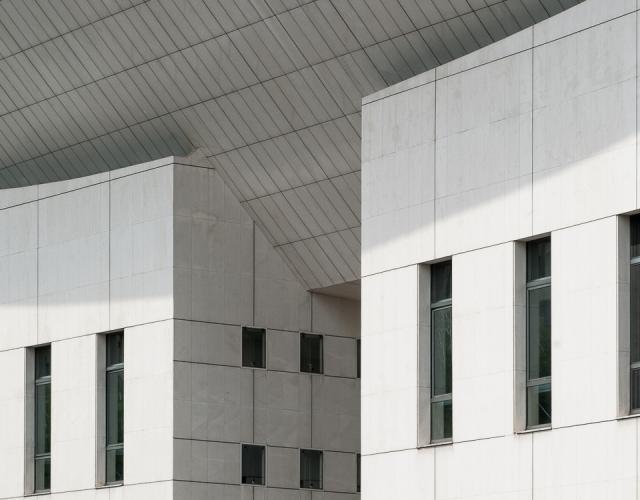
Artist diploma - Interpretation Creation (RIM) - 3ème Cycle
Information
-
Name
Artist diploma - Interpretation Creation (RIM)
-
Cycle
3rd Cycle
-
Course's number of years
2 years
-
Delivered diploma
Artist diploma - Interpretation Creation
-
Course objectives and content
Area 1: Practice
1.01 Creation
Development of one's own creative universe.
In-depth study of the role of the computer music producer in relation to the composer.
Consolidation of techniques related to creation.
1.02 Accompanying performers
In-depth study of the role of the computer music producer, in all its components (performer, technician, resource, etc.) in relation to other performers.
Consolidation of techniques related to these repertoires.
1.03 Introduction to generative improvisation
Discovery of generative improvisation and reflection on this practice in relation to 20th and 21st century repertoires and electroacoustic and mixed music.
Area 2: Knowledge and research
2.01 Knowledge of 20th and 21st century repertoires
Through practice and theory (workshops, lectures, etc.), development of a historically informed interpretative approach to these repertoires, through a critical approach to sources and performance traditions.
2.02 Real-time and deferred broadcasting techniques and tools
Mastery of real-time and deferred broadcasting techniques and tools.
2.03 Knowledge of the contemporary music ecosystem
Knowledge of dissemination networks and players in the field.
2.04 Research
Participation in the development and writing of a joint research project.
Area 3: Transmission
3.01 Introduction to mediation
Raising awareness of mediation tools and issues specific to the repertoires of the 20th and 21st centuries and to new works.
3.02 Mediation project
Implementation of a mediation project, in groups and semi-autonomously.
Axis 4: Professionalisation
4.01 Knowledge of the creative process
Regular work with composers and players in the field.
Creation and dissemination of works.4.02 Knowledge of stage professions, project design and production set-up
Workshops with guest speakers and the Conservatoire's resource departments.
4.03 Work placement
Completion of a work placement in an institution or company, in line with the teaching objectives of the course.
-
Number of complementary disciplines to validate
0
Disciplines
Entrance exam
Artist diploma - Interpretation Creation (RIM)
Opening date for registration : 01 April 2026
Exam dates : Présélection sur vidéo : mai-1er juin 2026. Admission au CNSMDP : début septembre 2026
Please note: this competition is aimed at candidates wishing to enrol on the Computer Music Producer course. For performers, see the "Artist Diploma - Interprétation Création" competition.
Visa
Non-EU candidates must apply for a short-stay “competition” visa in order to take part in the entrance examinations. If successful, this visa will then allow you to apply for a student visa. You should not apply for a tourist visa. More information here
Diploma requirement
This audition is open to candidates who hold a master's degree from a higher music education institution.
Pre-selection
Before the deadline(3 June 2024), the candidate must send a dossier including :
- a set of videos including a free programme of mixed works dating from after 1945, lasting between 10 and 15 minutes, which he or she has performed and produced during the two years preceding the competition;
- extracts from publications, articles or personal research work produced during the two years preceding the competition;
- a curriculum vitae ;
- a letter of motivation
In the event of insufficient applications, the Conservatoire reserves the right to extend the deadline for submission.
Admission (September)
- a repertoire test
- a 20-minute interview, in French or English, focusing on :
- a critical review of the repertoire test ;
- previous career ;
- motivation
- career plans
- ability to work as part of a group.
Description of the repertoire test
After pre-selection, eligible candidates receive the score and instructions for a work of mixed music.
The scores, notes and technical data sheets for the equipment provided for the test are sent to each candidate before 15 July.
During the test, candidates are asked to perform the work and lead the work session with the other performers. The session may be held in French and/or English.
Note: it is possible to finance your studies on this course via professional training.
Maximum age : 30
